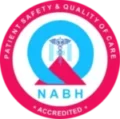Facilities at Vedanta Hospitals
ICU (Intensive Care Unit)
Intensive care units cater to patients with severe and life-threatening illnesses and injuries, which require constant, close monitoring and support from specialist equipment and medications in order to ensure normal bodily functions.
They are staffed by highly trained doctors and nurses who specialise in caring for critically ill patients. ICUs are also distinguished from normal hospital wards by a higher staff-to-patient ratio and access to advanced medical resources and equipment that is not routinely available else where. Common conditions that are treated within ICUs include ARDS, trauma, multiple organ failure and sepsis.
Patients may be transferred directly to an intensive care unit from an emergency department if required, or from a ward if they rapidly deteriorate, or immediately after surgery if the surgery is very invasive and the patient is at high risk of complications.
O.T. (Operation Theatre)
An operating theater is a facility within a hospital where surgical operations are carried out in a sterile environment. Tiered theater or amphitheater in which students and other spectators could watch surgeons perform surgery.
Operating rooms are devoid of a theater setting making the term. Operating rooms are spacious, easy to clean, and well-lit, typically with overhead surgical lights, and may have viewing screens and monitors.
Operating rooms are generally windowless and feature controlled temperature and humidity. Special air handlers filter the air and maintain a slightly elevated pressure. Electricity support has backup systems in case of a black-out. Rooms are supplied with wall suction, oxygen, and possibly other anesthetic gases. Key equipment consists of the operating table and the anesthesia cart. In addition, there are tables to set up instruments. There is storage space for common surgical
supplies.
Diagnosis Service
A diagnosis can be regarded as an attempt at classification of an individual’s condition into separate and distinct categories that allow medical decisions about treatment and prognosis to be made.
Its the light to the path of treatment. However efficient a doctor is, without a right diagnosis he can not treat patients well. Keeping this in view Vedanta family has arranged modern diagnosis facilities which are equipped with state of the art technology. Services Available : MRI, CT, USG, Color Do pllor, Digital X -Ray, Well equipped Pathology, EEG, ECG and Others.
Dialysis Unit
In medicine, dialysis is a process for removing waste and excess water from the blood and is used primarily as an artificial replacement for lost kidney function in people with kidney failure.
Dialysis may be used for those with an acute disturbance in kidney function or progressive but chronically worsening kidney function. The latter form may develop over months or years, but in contrast to acute kidney injury is not usually reversible and dialysis is regarded as a “holding measure” until a kidney transplant can be performed or sometimes as the only supportive measure in those for whom a transplant would be inappropriate.




